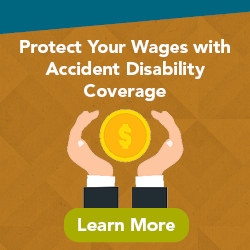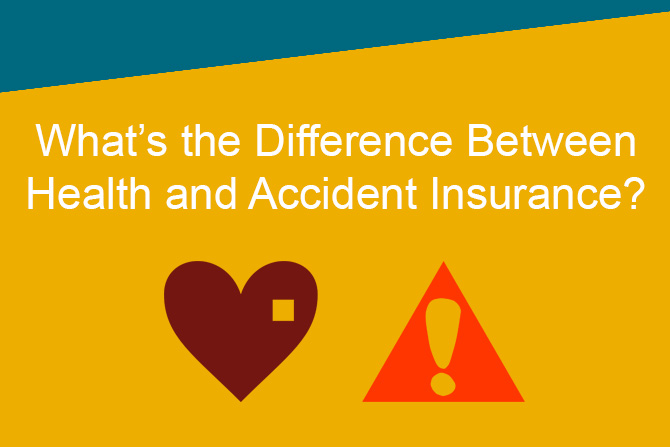Financial Options In Case You are Faced With a Disability
June 16, 2021

Would you know what to do if you suddenly became injured and unable to work? Although you may be healthy and financially stable now, an unexpected diagnosis or injury could significantly derail your income and plans. That’s why it is smart to know the financial options that are available for such situations. Here are three important ones to be aware of:
Social Security Disability Insurance
If the injury happened when you were not at work, you may be able to receive Social Security Disability Insurance (SSDI), which is a means of receiving Social Security benefits earlier than retirement. This benefit is meant for workers who are severely impaired and can’t return to work, and it can provide the same amount of money you would receive at full retirement age. You can tap into SSDI if you’ve paid FICA or self-employment taxes for several years. While the maximum benefit for 2021 is $3,148 if you’re at full retirement age, the average amount workers receive is $1,310 per month. To receive the benefit, you must be able to prove to the Social Security Administration that there is no job you can do (including a sit-down job) for at least a year.
Social Security is the nation’s largest disability insurance program, but each state has its own policies. The application process is lengthy, so you should start it as soon as possible. To apply, you must have been out of work for at least five months with the expectation that you will continue to be out of work for at least 12 months.
Leave Option
The nationwide "leave" option provided under the Family and Medical Leave Act (FMLA) of 1993 provides employees with health insurance benefits while they take a maximum of 12 unpaid weeks off work for serious medical conditions. To qualify, you must have worked for your employer at least 12 months before the injury and at least 1,250 hours. In addition, you must work at a location where the company employs 50 or more people within 75 miles. The FMLA entitles you to unpaid leave regardless of which state you work in. In addition, these states have programs that will provide you part of your pay while you are on leave: California, Connecticut, Massachusetts, New Jersey, New York, Oregon, Rhode Island, Washington, and Washington, D.C.
Employer-Sponsored Disability Insurance
Workers' compensation helps those who suffered a work-related accident while performing their normal work duties. To discover if you are eligible for it, you’ll work with your HR department to file a claim, and they will consider information from your doctor. Note that your employer can accept or deny your claim. If it’s denied, you can file a “claim petition” with the Bureau of Workers’ Compensation for a hearing before a workers’ compensation judge.
If you are approved, you will either be classified as having a temporary disability or a permanent disability. One type of temporary disability, called Scheduled Loss of Use (SLU), means you have lost the use of an extremity such as an arm, hand, leg, or foot. In SLU cases, you receive a lump sum of money based on the degree of disability you have.
Permanent disability payments are a separate category and compensation is given to those with injuries that don’t involve the extremities (back injuries are a common example). In permanent disability cases, you will receive an ongoing sum of money, based on your loss of wages.
When seeking workers’ compensation, it’s important to be diagnosed by a doctor who understands workers’ compensation rules. What you receive in payments will largely depend on your doctor’s opinion of your disability, including how severe it is and whether it’s temporary, permanent, total, or partial. With workers’ compensation, keep in mind that any costs related to the injury, such as surgery or medication, should be at least partially covered by your employer.
Purchase Private Disability Insurance
If you don’t have disability insurance through your job, you can purchase short- and long-term group disability policies through membership in professional organizations or an individual policy through a private insurer, such as KeenanDirect. These insurance policies will provide you and your family funds should you ever find yourself unable to work – for example, $500 per week, up to 13 weeks. These sort of policies range in coverage and can cover you for periods as long as life or as short as two years. Note that most policies have a waiting period (called the “elimination period”) before benefits are distributed, which can be anywhere from 30 days to a year.
To learn more about private disability insurance coverage and discover options that fit your budget, family, and lifestyle, please connect with a friendly KeeanDirect representative here. We’ll be happy to help you explore your options, plan smartly, and find the right financial safety net.










